Review: Spectacular Soloists at Chamber Music Society--Countertenor Anthony Roth Costanzo, Oboist James Austin Smith and Harpist Bridget Kibbey
With All Handel and Vivaldi program, the Ensemble ‘Goes for Baroque,’ Including Roth Costanzo’s Flirtatious Performance with Smith's Oboe and Kibbey's Sparkling Harp
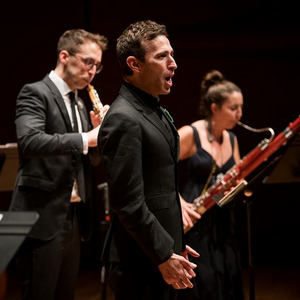
Photo: Cherylynn Tsushima
This week's concert of Vivaldi and Handel at the Chamber Music Society (CMS)--with countertenor Anthony Roth Costanzo, oboist James Austin Smith and harpist Bridget Kibbey--whipped the audience into a frenzy of delight with a combination of arias, sonatas and concertos at Lincoln Center's Alice Tully Hall.
There were many memorable moments in the 2 ½-hour concert, but the one I won't forget soon, was the interplay between Costanzo and Smith in Handel's "Quella fiamma" from the opera ARMINIO. Of course, the other players in the ensembles were first rate as well, but the countertenor and oboist were simply sensational in their joyous solos and astounding interchanges.
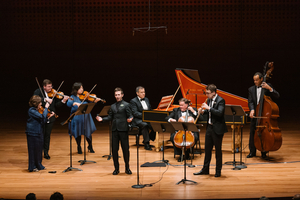
This kind of interaction between singers and orchestral instruments was one of the many innovations that Handel brought to opera, according to the program notes. But I can't imagine the musicians of Handel's age giving the contrasting performances that Costanzo and Smith--the oboist caught up in the moment and bopping around to the grand lines written for his instrument, while the singer was more physically (but not vocally, with his astounding coloratura) moderate--that I heard on Tuesday evening.
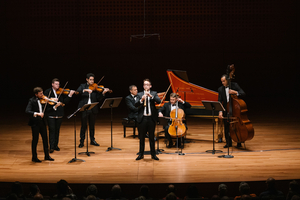
Their performance could almost be described as flirtatious, with the sounds of the oboe and the countertenor seemingly perfectly in alignment as they sidled up to one another. They echoed, they entwined, they caressed. The impression it left was indelible, but while the program notes "the oboe rivals the voice in character and clarity" there was no question that these were two different animals.
Smith gave a good example of this in Handel's Concerto in G minor for Oboe, Strings and Continuo, particularly in the Allegro movements, where he was so clearly having a good time sometimes going wild, while in other parts playing smoothly and creamily--or almost like a snake charmer. The Andante and second Allegro movements of the Handel Sonata in C brought out his most elegant and playful performances.
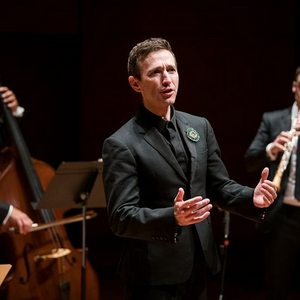
Costanzo's other gorgeous arias--Handel's pensive "Pena tiranna" from AMADIGI DI GAULA and livelier, dizzying "Vivi, tiranno" from RODELINDA--also feature the oboe but to quite a different effect, no less virtuosic but less the rival to the vocal line than simply in a different place. (Also wonderful work from bassoonist Gina Cuffari.)
Handel's Concerto in B-flat major for Harp was probably the most familiar sounding piece on the program that had people saying "oh, THAT's what that music is." Bridget Kibbey gave a muscular yet pure rendering of the piece that commanded the stage and left the audience wondering why we don't know her better.
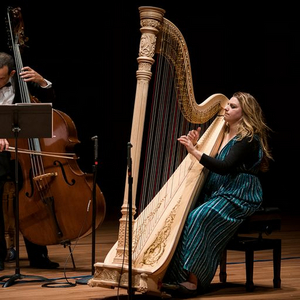
If I make it sound like Handel dominated the program, leaving Vivaldi in the dust, well that wasn't the case. Perhaps the most dazzling finger-work of the evening came from the Vivaldi Concerto in B minor for Four Violins, with Bella Hristova, Chad Hoopes, Ani Kavafian and James Thompson. Whether all together or in different configurations, the instrumentalists were utterly rapturous. Hoopes had his best opportunity to shine with the great energy demanded in the first movement of the Vivaldi Concerto in B-flat major and his duet-work with cellist Anthony Manzo was sweetness defined.
Two-and-a-half hours of Baroque chamber music? It went by in a flash, with the combination of virtuosi that had us eating out of their hands.
Reader Reviews

Videos

